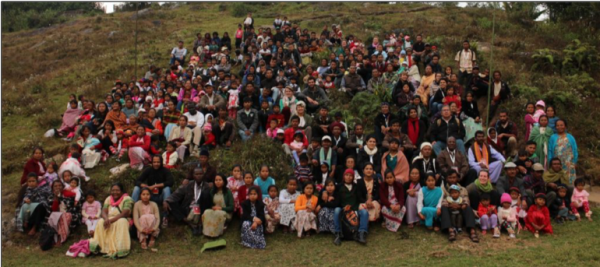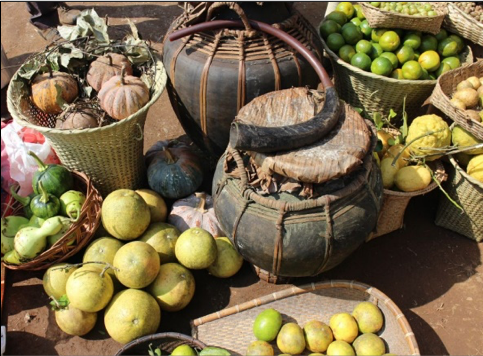First published on 09/25/2016, and last updated on 03/25/2018
By: Grazia Borrini Feyerabend, ICCA Consortium Global Coordinator
Probably most of you know about Slow Food, an organization started by the now legendary Carlo Petrini in Rome in the 1980s, as a reaction to low-quality, mass-produced fast food. Over the past decades, the movement has grown into a sort of “food revolution”. With tens of thousands of members, the movement promotes food that is “good, clean and fair.” Promoting biological and cultural diversity and upholding traditional foods, Slow Food works at a grassroots level with indigenous farmers, pastoralists, hunter-gatherers, and fisherfolk, and connects them with scientists, chefs and policy makers. Slow Food is also the key promoter of Terra Madre—an international event that regularly brings to Italy thousands of farmers and food producers from all over the world. In 2011, the First Indigenous Terra Madre (ITM) event was organized in Jokkmokk, Sweden, by the Sámi people. It was Slow Food’s first event to be entirely dedicated to indigenous peoples.
Four years later, on November 3-7, 2015, the second Indigenous Terra Madre event was held in remote north-east India, in Shillong (Meghalaya). The meeting gathered 628 delegates from 62 countries and 170 indigenous communities. They met with the Indigenous Partnership for Agrobiodiversity and Food Sovereignty, Slow Food International, various UN agencies and donors to showcase their traditional knowledge, skills and practices that safeguard natural resources and contribute to resilient food systems. Taken as a whole, this is a wealth of capacities towards a more sustainable, healthier, and humane future. To get a glimpse of the atmosphere at the meeting, you may watch this video.

All ITM participants had an opportunity to spend a full day with a local community and enjoy the traditional food they prepared © Gbf
At the kind invitation of one of the Consortium’s main donors– the Christensen Fund– I participated in this meeting together with Salatou Sambou, the Coordinator for the marine and coastal ecosystems of West Africa. Salatou and I were invited to share the experience of Kawawana, a well-known ICCA in Casamance (Senegal). The theme of food sovereignty and recuperation of ancestral knowledge related to food, fishing and agriculture was central at every step of the emergence of Kawawana, and still is today. Indeed, the departure point of the process was the local loss of food sovereignty, because their environment had been pillaged by overfishing, and fishing with damaging gears, by outsiders. Today, the establishment of the ICCA Kawawana has allowed the villagers to re-instate local governance and management of natural resources. In one of the zones of the ICCA (the “food sovereignty zone”) fishermen fish only for local consumption and sell their fish only in the eight villages that comprise the local municipality, at a locally agreed price. With that, the local villagers can again eat the “good fish” they like. This is a rule they consciously and collectively devised as essential for the return to what they call “the good life”.

A perfect black and white! Salatou Sambou, ICCA Coordinator for the marine ecosystems of West Africa, meets two young colleagues from a local community in Meghalaya, India. © Gbf
The Indigenous Terra Madre gathering produced the Shillong Declaration (find here the links for the declaration in English, Spanish, French, Portuguese and Russian). The declaration is a compelling call to do all that is needed to conserve agro-biodiversity and agro-ecological production— the ground of food sovereignty around the world. The Consortium is proud to have contributed to the development of this declaration and, in particular, to the call to ensure that indigenous peoples and local communities are enabled to continue to “care for, and maintain, their lands and territories” and “protect, sustainably use, restore and enrich the variety of seeds, breeds, fish, bees and other living organisms they host”. Our contribution also stressed the “stewardship role and capacity to generate marvellously diverse food for people and cultures” and the wealth of “languages and traditional knowledge, practices and institutions that evolved with agro-biodiversity”. Importantly, we recommended clarifying that food sovereignty depends on “secured domains” and the “collective governance and management of land, water and natural resources”. The declaration took-on all our points, and we trust that spreading positive words and ideas is a key step towards consequent action.
